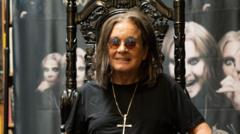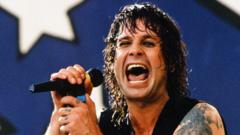Pope Francis, the first Jesuit pope and a figure of surprises, leaves behind a remarkable legacy of humanitarianism and a unique approach to governance that kept both allies and critics guessing.
Pope Francis: A Surprising Legacy of Compassion and Challenge

Pope Francis: A Surprising Legacy of Compassion and Challenge
Reflecting on the unexpected papacy of Pope Francis, who reshaped the Catholic Church until his demise in 2025.
Pope Francis, born Jorge Mario Bergoglio in Argentina, entered the papacy in 2013 and remained an unexpected influence until his death on April 21, 2025. His tenure was marked by a blend of surprising choices and unorthodox solutions that delighted and baffled many. Reflecting on his impactful journey, New York Times reporter Jason Horowitz shared his insights during an April 2025 briefing from Rome, reminiscing about how he initially misjudged Francis's trajectory for the papacy.
When Jorge Mario Bergoglio rose to prominence, many believed his humble origins and Jesuit background positioned him well to lead the Church forward. However, he initially lost out to the conservative Joseph Ratzinger, later known as Pope Benedict XVI, in the 2005 conclave. Eight years later, as the smoke billowed from the Sistine Chapel, observers thought the aging cardinal was no longer a prime candidate. Francis surprised everyone by claiming the papacy and adopting the name of the patron saint of the poor, which reflected his compassionate mission.
Throughout his time as pope, Francis traveled to unexpected regions, advocating for humanitarian causes and addressing global crises largely ignored by mainstream media. His meeting with Rohingya Muslim refugees in Bangladesh remains a poignant moment, highlighting his unwavering dedication to marginalized populations. Horowitz described seeing the pope visibly shaken during these encounters, revealing his profound empathy for the suffering of others.
While on the papal plane, Francis exhibited an approachable demeanor, exhibiting a keen sense of humor that contrasted sharply with his whirlwind of responsibilities. However, his governance style was a point of contention, with some critics perceiving him as authoritarian while he navigated an institution known for its slow-moving bureaucracy. At times, his reluctance to make bold decisions left followers questioning his strategy, particularly concerning sensitive issues like allowing older, married men to serve as priests.
In summary, Pope Francis's legacy is a testament to his unpredictable nature and genuine compassion. His surprises, both in actions and decisions, engaged followers and left an indelible mark on the Catholic Church and the world at large. Jason Horowitz continues to cover the evolving landscape of the Vatican and its significance globally as the next chapter unfolds.



















